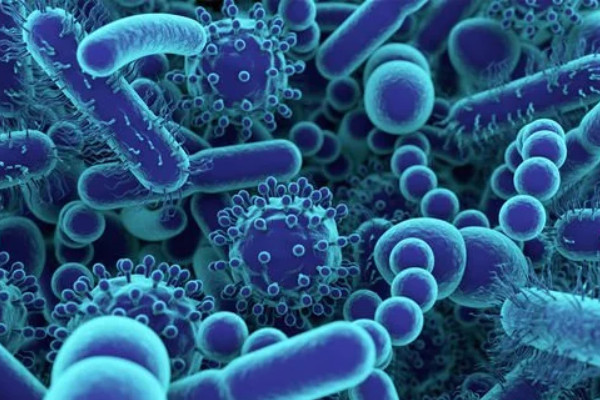||| FROM STATE DEPARTMENT OF HEALTH |||
Newest numbers. The Department of Health reported a total of 172,437 confirmed cases as of 11:59 pm on December 2. There have been 2,900 COVID-19 deaths in Washington.
For the most recent tally of cases by county, demographics, and more, visit the Department of Health’s dashboard and the state’s COVID-19 risk assessment dashboard.
COVID-19 vaccine distribution plan update from the Department of Health. DOH is hopeful we will have a vaccine to begin administering by mid-December. The federal government has given us an estimate of 62,400 doses of the Pfizer vaccine for our initial allocation. They have also told us we should receive an estimated total of around 200,000 doses of the Pfizer vaccine by the end of December. Regular weekly shipments should begin in January. Read the full news release here.
Washington state adopting CDC’s new quarantine guidelines. The Department of Health is adopting the new Centers for Disease Control and Prevention (CDC) guidelines to reduce quarantine for people who have been exposed to COVID-19. Although both the Washington State Department of Health and CDC currently recommend a quarantine period of 14 days, there are circumstances that allow for a shortened quarantine. These include:
- If a person who is in quarantine has no symptoms, quarantine can end after Day 10.
- If a person who is in quarantine receives a negative COVID-19 test and has no symptoms, quarantine can end after Day 7. Get tested within 48 hours before ending quarantine.
Read the full news release here.
December 2 COVID-19 response update media briefing recording available. A recording of this week’s COVID-19 response update media briefing with leaders from the state COVID-19 response is available from TVW here.
Coping with COVID: Developing resilience. Information about mental health and self-care has been popping up everywhere as we collectively cope with the impacts of the COVID-19 pandemic. Buzzwords keep showing up to describe what people are going through right now: “burnout,” “compassion fatigue,” and “resilience.” Understanding these experiences can help us care for ourselves in the months ahead.
In this episode of our Coping with COVID podcast series, Kira Mauseth, PhD and Doug Dicharry, MD dive into the ingredients of resilience and make practical suggestions for developing resilience in yourself and your family. Read the blog and listen to the podcast here.
COVID-19 Long-term Care Report. As of November 30, a total of 10,036 COVID-19 cases (6% of total cases) and 1,467 deaths (53% of total deaths) have been identified as associated with a long-term care facility (i.e., nursing home, assisted living facility or adult family home). Read the full report here.
- These cases include residents as well as employees and visitors. Not all of these cases were exposed at a LTC facility.
- Many cases visited multiple places during their exposure period, and some individuals may have visited a LTC facility after disease onset.
Applications open for new round of state Working Washington business grants. Small businesses struggling to survive the impact of COVID-19 can apply now for up to $20,000 in a new round of $50 million in state Working Washington grants. Priority is focused on businesses with annual revenues of $5 million or less in 2019 and those most impacted by the recent public health measures, as well as businesses in sectors that have experienced significant, cumulative impacts. Examples include full-service restaurants, fitness centers, bowling alleys and music and event venues.
Information and applications for this third round of Working Washington Business Grants are available through an online portal on the Washington State Department of Commerce website at www.commerce.wa.gov/
Inslee updates restrictions for religious and faith based organizations. Gov. Jay Inslee updated restrictions for religious and faith based organizations.
The update clarifies that religious and faith-based organizations can hold outdoor services with up to 200 individuals, regardless of location, so long as physical distancing is followed and face coverings are worn. This modification expands where outdoor services can be held. Read the full guidance document here.
In Case You Missed It
Statewide COVID-19 exposure notification tool now available. WA Notify is a simple, anonymous exposure notification tool to help stop the spread of COVID-19. By adding WA Notify to your smartphone, you will be alerted if you’ve spent time near another WA Notify user who later tests positive for COVID-19.
WA Notify uses privacy-preserving technology jointly developed by Google and Apple and works without collecting or revealing any location or personal data.
To learn more:
- Visit WANotify.org to see how easy it is to add WA Notify to your smartphone or to learn more.
- Information about WA Notify is available in multiple languages — choose from the full list at WANotify.org/languages.
- View a video that describes how WA Notify works.
- View a 30-second WA Notify ad.
Resources
Latest COVID-19 reopening guidance for businesses and workers. A full list of current reopening guidance is available here.
Find a COVID-19 testing location near you. To make it easier to find a test near you, the Department of Health has created a webpage to help people find COVID-19 testing locations throughout the state.
Guidance and resources for employers and business owners. Sign up for the weekly business and worker newsletter here.
State COVID-19 Assistance Hotline is a general information line related to COVID-19. If you need information or have a general question, call 1-800-525-0127 or text 211-211 for help. You can also text the word “Coronavirus” to 211-211
Washington Listens helps people manage stress and anxiety they may be experiencing because of COVID-19. If you or anyone you know is having difficulties managing stress, call the Washington Listens support line at 1-833-681-0211. Hours are from 9 a.m. to 9 p.m. Monday through Friday, and 9 a.m. to 6 p.m. Saturdays and Sundays. TTY and language access services are available by using 7-1-1 or their preferred method. Resources and self-help tips are available on walistens.org.
**If you are reading theOrcasonian for free, thank your fellow islanders. If you would like to support theOrcasonian CLICK HERE to set your modestly-priced, voluntary subscription. Otherwise, no worries; we’re happy to share with you.**








